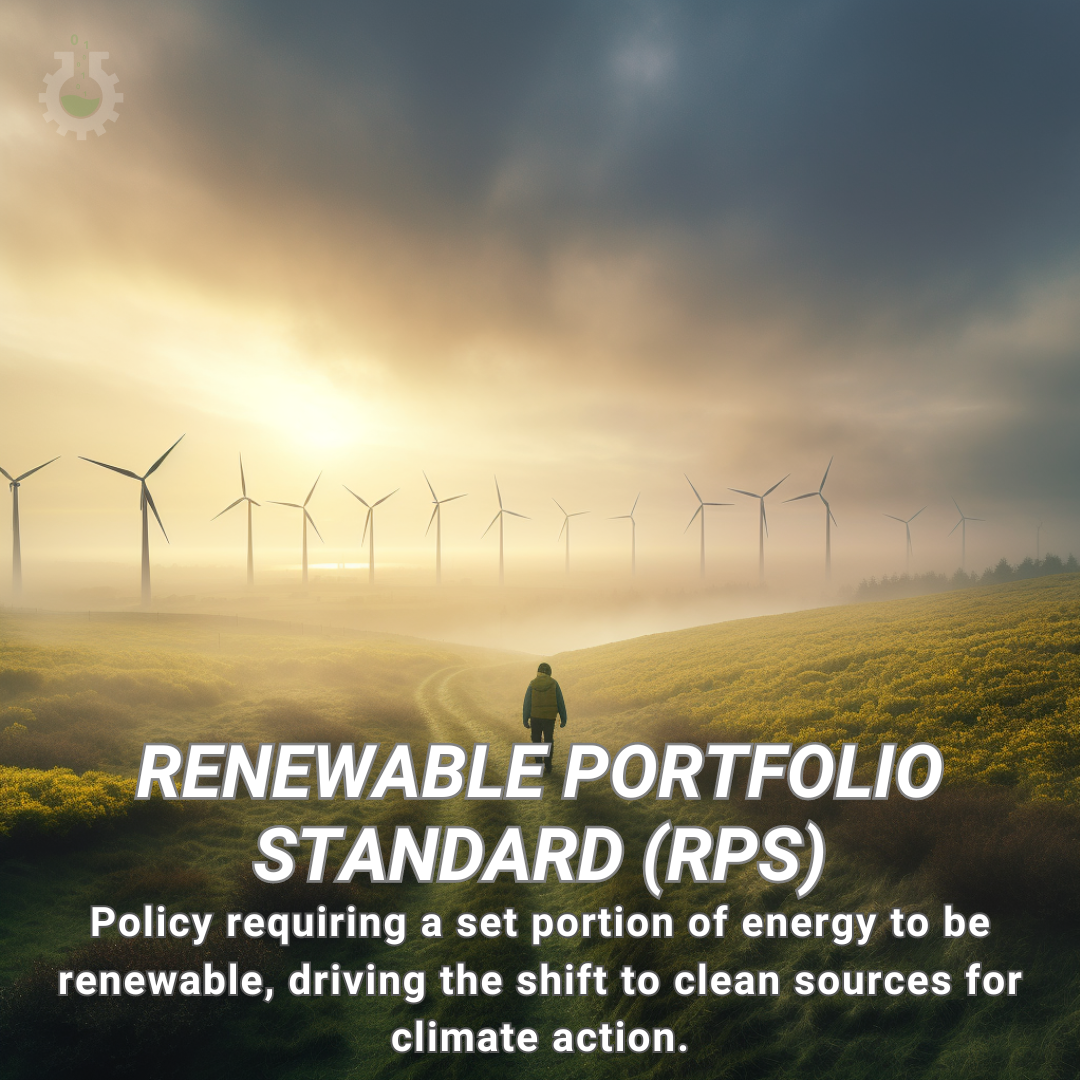February 12, 2024
Climate Change Poster Collection of the Day – Renewable Portfolio Standard (RPS)
Book a Demo
Today’s Climate Change Poster Collection highlights Renewable Portfolio Standard (RPS) a significant policy designed to augment energy production from renewable sources. These sources encompass wind, solar, biomass, and geothermal energy. At its core, the RPS mechanism necessitates electricity supply companies to produce a stipulated percentage of their electricity from these renewable sources.
The overarching aim of RPS programs is to stimulate price competition among different types of renewable energy. The objective is to make the delivery of renewable energy as cost-effective as possible. This approach has led to several countries, including the United Kingdom, Italy, Poland, Sweden, Belgium, Chile, and 29 of the 50 U.S. states, adopting RPS mechanisms.
There have been significant strides in the cost-effectiveness of renewable energy, particularly with wind and solar energy. Since 2013, the cost of electricity derived from wind energy has plummeted below that of all fossil fuels. Not far behind, solar energy became more cost-effective than fossil fuels in 2015.
RPS policies often stipulate or encourage electricity suppliers to fulfill a minimum share of their electricity production from renewable sources. These sources include wind, solar, geothermal, biomass, and certain types of hydroelectricity. The adoption of RPS has been growing in the United States. As of November 2022, 36 states in the U.S. and the District of Columbia have established an RPS or renewable energy goal. Among these, 12 states have set stringent goals, requiring 100% clean electricity by 2050 or earlier.
A crucial component of RPS policies is the renewable electricity credit (REC) trading system. This allows utilities that exceed their RPS requirements to trade or sell RECs to other suppliers. By doing so, the overall cost of RPS compliance is reduced, further incentivizing the shift towards renewable energy sources.
Renewable Portfolio Standards are a powerful tool in our quest for a more sustainable and eco-friendly energy production landscape. By setting mandatory goals and encouraging competition, we can expect to see a continuous decline in renewable energy costs and a significant reduction in our reliance on fossil fuels.
Discover an inspiring collection of climate change poster.



